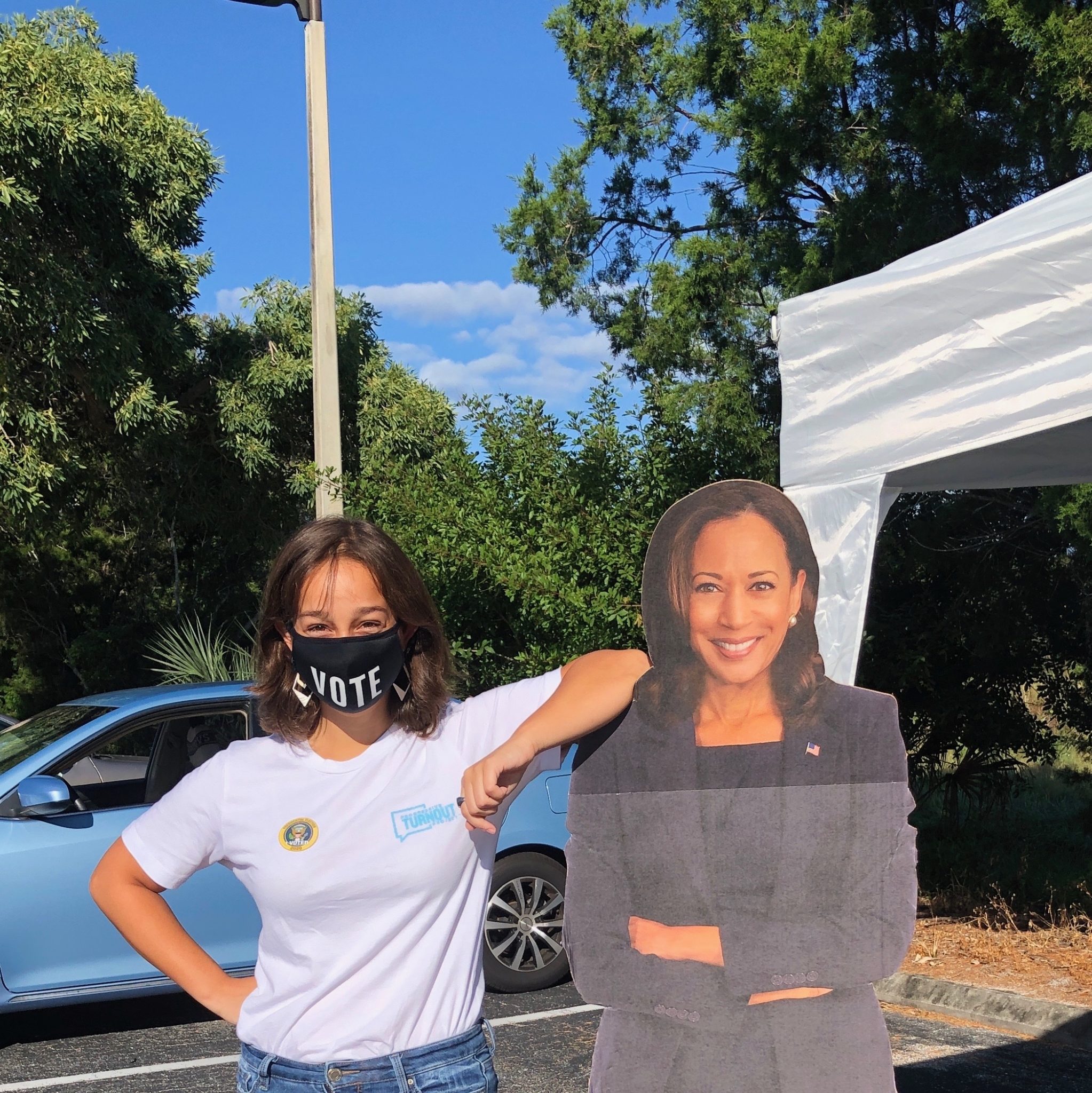‘I had an obligation to do what I could’: Sophie Huttner ’23 calls voters in the South to get Democrats elected

Courtesy of Sophie Huttner
Although life during the COVID-19 pandemic is often unpredictable, for Sophie Huttner ’23, one thing has remained constant — for five days a week since July, she has spent four hours per day on the phone with voters, trying to turn out the Democratic vote.
Huttner works as a field representative for the Progressive Turnout Project, an organization that does person-to-person canvassing with infrequent or undecided voters. Huttner would have been a junior this year — but like other Yalies, when faced with the choice between taking remote classes or being involved in a pivotal election year, she opted for the latter, and took a gap semester to do so.
“I felt that with all the things going on in our country, in this moment, I could spend my time in a really meaningful way outside of campus,” Huttner said.
When Huttner initially started her job this past summer, she relocated to Sarasota, Florida, expecting to be doing in-person canvassing. But with COVID cases on the rise, PTP soon switched her position to entirely phone banking. She spent the months prior to the Nov. 3 election calling voters in Florida, Georgia and South Carolina, three pivotal states in the election. Now, Huttner is continuing to call voters in Georgia ahead of the state’s runoff Senate elections, which will take place in early January.
This is Huttner’s first time doing a long-term politics job. She said that it has broadened the way she views the American electorate far beyond what she has learned in her political science classes at Yale. In talking to voters, she began to notice common themes — most prominently, deep concerns about healthcare.
“It was really enlightening, because I got to talk to over 1,200 fellow Americans about their lives,” Huttner said. “And many of them were very kind to invite this disembodied voice into their home, and to really open up to me about the sort of things that they were concerned about.”
Huttner recalls a 30-minute conversation she had with an undecided voter in Florida a month before the election. Before this experience, Huttner said, undecided voters had always seemed like a “myth,” but she has spoken to many during her time at PTP.
This woman, in particular, was an elementary school teacher. She was deeply angry that in her 30 years of teaching in public schools, her salary had not changed in a state that already has one of the lowest salaries for public school teachers. Her family was also on the verge of losing their home, as they could not afford the costs of her husband’s cancer treatment due to the high costs of healthcare.
Huttner spent those 30 minutes talking to the woman about the Democrats’ plans for reforming healthcare and for improving public schools. By the end of the conversation, the woman said that she would be voting for Democrats in the election.
“It was a great conversation, because we both went into it with open minds and we had a real connection,” Huttner said. “And I’ll always remember that she shared her life with me at a very vulnerable time. And I’ll always appreciate that.”
Huttner’s team of field representatives at PTP was made up of 14 people from very different walks of life. One of Huttner’s co-workers, Brenda Green, had spent years as a schoolteacher in Florida before deciding to get involved with the 2016 and 2020 elections.
Huttner was the only member of the team who could speak Spanish fluently, and Green told the News that she would often refer voters to Huttner if they needed information in Spanish. She and Huttner also often spent their days off volunteering together on other Democratic campaigns.
“[Huttner] had a complete willingness to do what it took to help the team,” Green said. “She independently took it upon herself to create a document for us with all of the Florida counties and corresponding supervisor of election numbers … And her Spanish-speaking abilities were a big win. It was really lovely to have that as an asset to our team.”
As her time with PTP begins to wind down, Huttner said that she has learned a lot from the experience. She recognized that there are, in fact, many voters who remain undecided right up until election. She said she now understands why so many politicians based their platforms around healthcare. And she said that she will be leaving PTP with “thick skin,” after all of her time spent cold-calling voters.
Huttner will take another leave of absence in the spring, although she is not yet sure of her plans. For now, she continues to work with PTP, calling voters in Georgia for four hours each day.
“In the future, I’m hoping to get involved in other ways in helping to address some of the issues that I spoke to people about,” Huttner said. “These issues are really hurting people right now, and hearing about them, I want to help.”
Amelia Davidson | amelia.davidson@yale.edu







